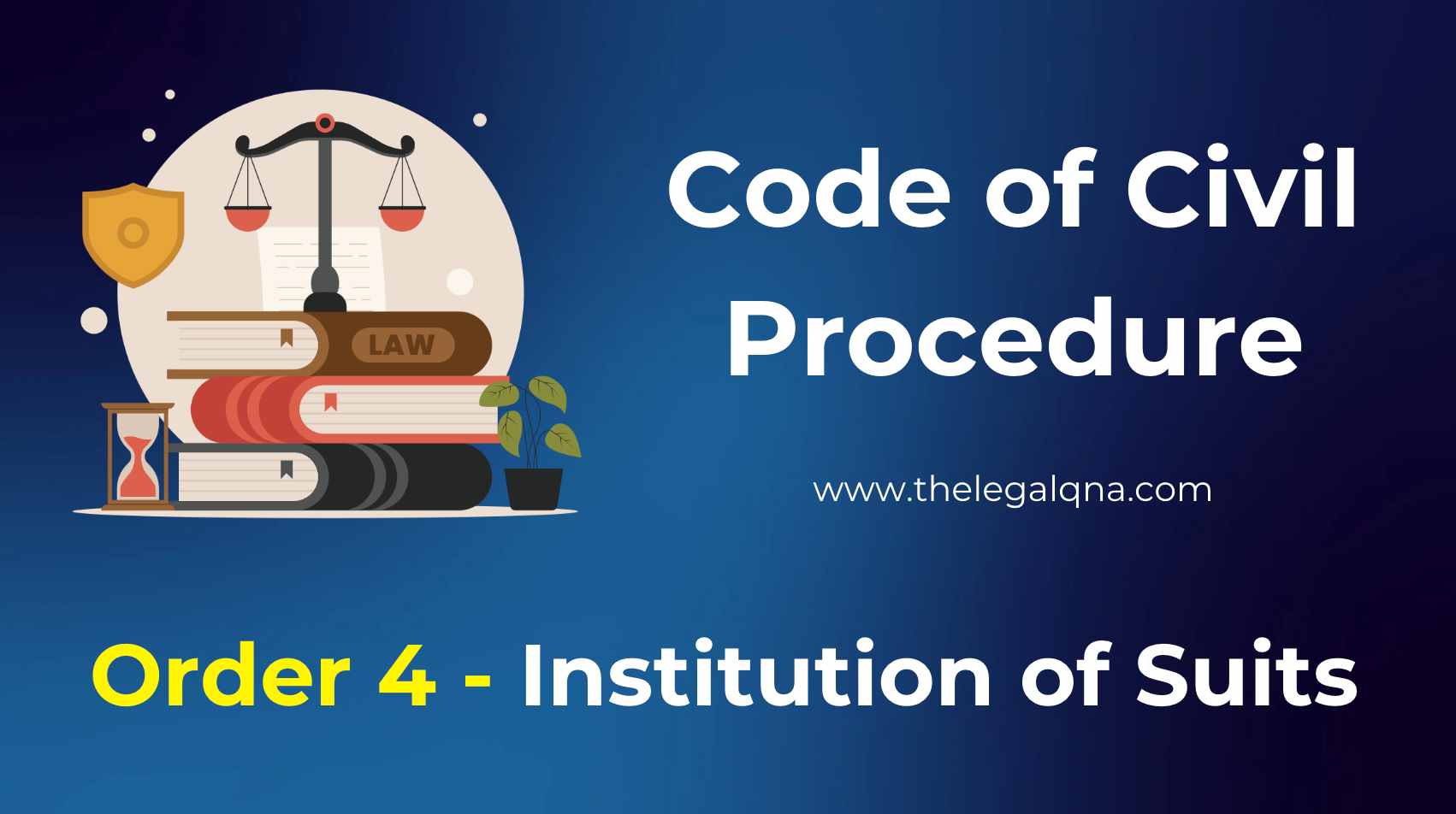Order IV of the Civil Procedure Code (CPC), 1908, lays out the fundamental guidelines for instituting civil suits in Indian courts.
It provides clear instructions on how a suit must be initiated and registered in compliance with the law. Below, we simplify and explain its key provisions in detail.
What is Order IV of CPC?
Order IV deals with the institution of suits—the process of formally starting a lawsuit in civil courts.
The main steps include filing a “plaint” (a written statement of claim) and ensuring compliance with specific rules.
Provisions of Order IV
1. How to Begin a Civil Suit
- Submission of Plaint: A civil suit begins by filing a plaint. It must be submitted in duplicate to the court or an officer appointed by the court. The plaint serves as the foundation of the case, outlining the grievances and relief sought by the plaintiff.
- Compliance with Orders VI and VII: The plaint must follow the format and requirements specified in Order VI (Pleading Generally) and Order VII (Plaint Rules). These include guidelines on the structure, content, and clarity of the plaint.
- Validity of Institution: A suit is considered properly instituted only when the plaint meets all the requirements mentioned above. If the plaint fails to comply, it will not be deemed valid.
2. Registering Civil Suits
Civil Suit Register: The court maintains a Register of Civil Suits to keep track of all cases.
- Once a plaint is admitted, its details are entered in this register.
- Each entry is assigned a unique number, based on the chronological order of admission within the same year.
Purpose of Registration: This ensures proper record-keeping and allows easy tracking of cases.
Simplified Process of Filing a Civil Suit Under Order IV
- Draft the Plaint: Prepare a plaint that clearly states the case details, grievances, and requested reliefs. Ensure it complies with the rules of Order VI and VII.
- Submit in Duplicate: File the plaint in duplicate with the court or its appointed officer.
- Verification of Compliance: Ensure the plaint meets the legal requirements. If it does not, the suit will not be deemed valid.
- Registration: After acceptance, the suit is entered into the court’s register and assigned a unique case number.
Why is Order IV Important?
Order IV establishes the procedural foundation for initiating legal proceedings. Adhering to its rules ensures:
- Uniformity in Filing: The requirement to follow specific rules minimizes confusion and maintains order in the judiciary.
- Accountability and Record-Keeping: The registration system allows the judiciary to systematically manage cases.
- Legal Validity: Proper compliance ensures the case can proceed without delays caused by procedural lapses.
Common Mistakes to Avoid When Filing a Suit
- Incomplete or Incorrect Plaint: Not following the rules of Order VI and VII can result in rejection or delay of the suit.
- Failure to Submit in Duplicate: Courts require two copies of the plaint for processing; submitting only one may lead to rejection.
- Missing Deadlines: Delays in filing can affect your case’s registration and progression.
- Ignoring Required Details: Ensure all necessary details, such as the parties involved, jurisdiction, and relief sought, are clearly mentioned in the plaint.
Verdict
Order IV of the CPC, 1908, provides the foundational steps for initiating civil suits in India. It emphasizes the importance of filing a properly drafted plaint and maintaining a systematic registration process.
By following these guidelines, litigants can ensure their cases are admitted and proceed smoothly through the legal system.















